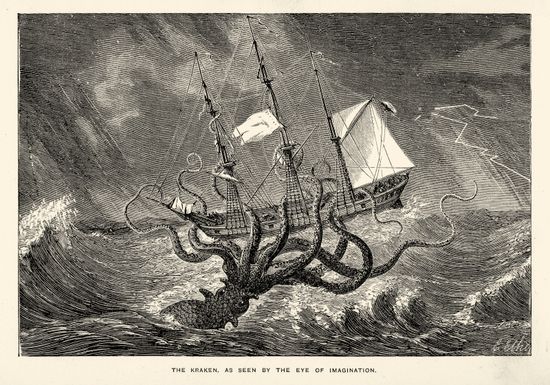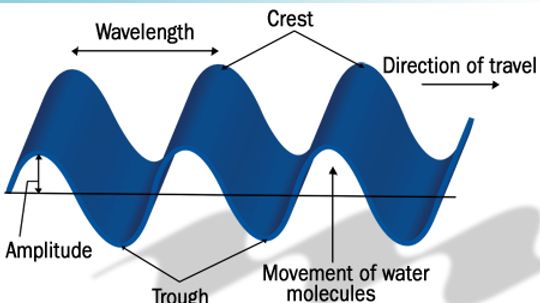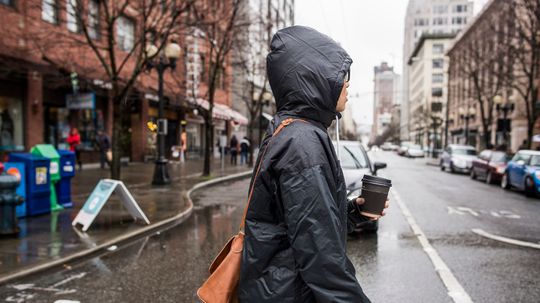Everyday Myths
There are certain aspects of everyday science that we think of as fact, but in reality may be pure urban legend. In this section, you can learn about some of the everyday science myths you may encounter.

Top 10 Ghost Tours

Top 10 Hotels That Will Scare the Daylights Out of You

What's So Scary About The Winchester House Story?

Understanding the Profound Meaning of Angel Number 909

The Mystical Meaning of Angel Number 727

1818 Angel Number: Unlocking the Path to Abundance and Success

Is the Bondo Ape a Cryptid or a Specially Adapted Chimpanzee?

The Yeti, aka Abominable Snowman: A Classic Cryptid

A Deep Dive on the Kraken, a Shipwrecking Sea Monster

What's Going on With Detroit's Mysterious Zug Island?

10 Unidentified Sounds That Scientists Are Seriously Looking Into

10 Famous Paranormal Hoaxes

What If Cows Didn't Exist?

What If Earth's Magnetic Field Flipped?

What If Humans Could Breathe Underwater?
Learn More / Page 2
Superman has his Bizarro planet, Alice tiptoes through the looking glass. For scientists, that world where normal rules and laws fail to explain what's happening is quantum physics. What's so weird about it?
By Robert Lamb
You've heard the saying for ages, but exactly why is it so dangerous to go swimming right after you eat?
A CART race at Texas Motor Speedway was cancelled because the G-forces on the drivers were too high. How can you calculate the G-forces, and how do the cars generate forces that high?
Advertisement
Saturation diving hinges on the idea that the dissolved gases in our blood and body tissues match those in our lungs. This deep-sea exploration method allows divers to work at extreme depths without constantly surfacing. Learn how it works.
If you were to fly west around the world, fast enough so that you crossed one time zone every hour, would you stand still in time?
To understand the universe better, scientists from all over the world are going to harness the power of an enormous machine -- the Large Hadron Collider.
Decades before you ever heard of the Higgs, this multinational particle physics lab was smashing its way to answers about how the universe worked. Pop inside CERN just as half of the world's particle physicists do every year.
Advertisement
When you're a kid, this frightening rumor burns through the playground like wildfire. After all, what could be worse than your own eyes exploding out of your head? But does it have any truth to it?
By Amy Hunter
Though they're indispensable to any construction project, nails have a nasty habit of getting hammered into thumbs and puncturing tires. Is a rusty nail even more dangerous?
There's actually an equation to figure it out!
A helium balloon rises because the helium is lighter than air. So how would a balloon -- made from a very sturdy but very lightweight material -- that had been removed of all air respond?
Advertisement
February is an unusual month, especially when it comes to leap years. In this article, you can read about why we use leap years and how the year 2000 was a leap year and 1900 was not.
By Sascha Bos
Special relativity deals in phenomena that don’t agree with our historical or commonsense views of how the universe works. In fact, many of the theory’s assertions almost appear ludicrous.
By John Zavisa
You may have noticed that we're all constantly traveling into the future. But what if you were interested in dancing through the fourth dimension more deftly than the next guy? How might you do that?
By Kevin Bonsor & Robert Lamb
Looking forward to instantaneous travel? The Star Trek teleporter is one step closer to reality. Scientists have now teleported a laser beam. Could humans be next?
By Kevin Bonsor & Robert Lamb
Advertisement
Ever wonder why we start our year on the first of January? Or why we have January and the other 11 months in the first place? Find out all about time.
At an intersection, you hear the pitch of the train's horn go up and then back down after the train has passed. Why?
Ever seen a movie where the hero gets in an elevator, but the evil villain cuts the cables? Elevators in the real world have so many safety features, it's not as horrible a situation as the films make out.
It may shock you, but there's never been a widespread study conducted on the sanitation or the necessity of the courtesy flush. Can this practice inflict grievous bodily harm on your hindquarters — and the environment? HowStuffWorks weighs in.
Advertisement
For decades, moms have been threatening that if you don't eat your crust, your hair will fall out, fall limp or somehow fall incorrectly. What's the deal with bread crusts and hairstyles?
If you've ever been to a slumber party, you know the drill. Place your fingers under someone's body, chant "Light as a feather ... stiff as a board ..."and they'll magically rise up into the air. Is this old trick a true ghostly phenomenon?
By Debra Ronca
Walking down a city sidewalk, you protect your valuables and weave through crowds. Should you also beware of falling pennies?
Chicago has long been known as "The Windy City." It's a pretty cool nickname, but does it live up to it?
Advertisement
Rainy, dreary, Seattle, right? Everyone says it's the rainiest city in the United States. However, Seattleites are keeping a secret from you. Find out if their rainy reputation is real — or if the rumor's all wet.
Summertime fashion — light in weight and light in color. Are these pastel colors a designer's choice? Or do light colors actually keep you cooler, as some say? Read to find out if you should ditch the goth wardrobe this summer.
























